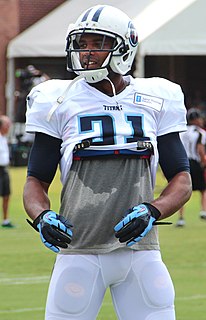A Quote by Sigmund Freud
Psycho-analysis has taught us that a boy's earliest choice of objects for his love is incestuous and that those objects are forbidden ones - his mother and his sister. We have learnt, too, the manner in which, as he grows up, he liberates himself from this incestuous attraction. A neurotic, on the other hand, invariably exhibits some degree of psychical infantilism. He has either failed to get free from the psychosexual conditions that prevailed in his childhood or he has returned to them - two possibilities which may be summed up as developmental inhibition and regression.
Quote Topics
Analysis
Attraction
Boy
Childhood
Choice
Conditions
Degree
Developmental
Earliest
Either
Exhibits
Failed
Forbidden
Free
Get
Grows
Hand
Himself
His
His Love
Invariably
Learnt
Love
Love Is
Manner
May
Mother
Neurotic
Objects
Other
Possibilities
Psycho
Regression
Returned
Sister
Some
Taught
Taught Us
Them
Those
Too
Two
Up
Us
Which
Related Quotes
Man never ceases to seek knowledge about the objects of his experiences, to understand their meaning for his existence and to react to them according to his understanding. Finally, out of the sum total of the meanings that he has deduced from his contacts with numerous single objects of his environment there grows a unified view of the world into which he finds himself "thrown" (to use an existentialist term again) and this view is of the third order.
His [Henry Cavendish's] Theory of the Universe seems to have been, that it consisted solely of a multitude of objects which could be weighed, numbered, and measured; and the vocation to which he considered himself called was, to weigh, number and measure as many of those objects as his allotted three-score years and ten would permit. This conviction biased all his doings, alike his great scientific enterprises, and the petty details of his daily life.
In the latter sense, a man has a property in his opinions and the free communication of them. He has a property of peculiar value in his religious opinions, and in the profession and practice dictated by them. He has an equal property in the free use of his faculties and free choice of the objects on which to employ them. In a word, as a man is said to have a right to his property, he may be equally said to have a property in his rights.
When he tries to extend his power over objects, those objects gain control of him. He who is controlled by objects loses possession of his inner self... Prisoners in the world of object, they have no choice but to submit to the demands of matter! They are pressed down and crushed by external forces: fashion, the market, events, public opinion. Never in a whole lifetime do they recover their right mind!... What a pity!
Every man is prompted by the love of himself to imagine that he possesses some qualities, superior, either in kind or degree, to those which he sees allotted to the rest of the world; and, whatever apparent disadvantages he may suffer in the comparison with others, he has some invisible distinctions, some latent reserve of excellence, which he throws into the balance, and by which he generally fancies that it is turned in his favour.
The disappointed man turns his thoughts toward a state of existence where his wiser desires may be fixed with the certainty of faith; the successful man feels that the objects which he has ardently pursued fail to satisfy the cravings of an immortal spirit; the wicked man turneth away from his wickedness, that he may save his soul alive.
War is all we've been taught, but there are other ways to live. We can find them, Akiva. We can invent them. This is the beginning, here." She touched his chest and felt a rush of love for the heart that moved his blood, for his smooth skin and his scars and his unsoldierly tenderness. She took his hand and pressed it to her breast and said, "We are the beginning.
The only distinction between freedom and slavery consists in this: In the former state a man is governed by the laws to which he has given his consent, either in person or by his representative; in the latter, he is governed by the will of another. In the one case, his life and property are his own; in the other, they depend upon the pleasure of his master. It is easy to discern which of these two states is preferable.
The master in the art of living makes little distinction between his work and his play, his labor and his leisure, his mind and his body, his information and his recreation, his love and his religion. He hardly knows which is which. He simply pursues his vision of excellence at whatever he does, leaving others to decide whether he is working or playing. To him he's always doing both.
By an ambitious chieftain, aiming only to aggrandize himself and establish his power, the subject might have been regarded in a different light; but the designs and actions of Washington centred in nobler objects, the freedom, tranquillity, and happiness of his country, in which he was to participate equally with every other citizen, neither seeking nor expecting any other preeminence than that of having been an instrument in the hand of Providence.
In other words, homosexuality was no longer to be considered an illegal form of debauchery or perversion in which one willingly engaged a person of his own sex, but a mental illness which one blamed on his mother. Consequently, a homosexual is not responsible for his behavior - it's his mother's fault!






































